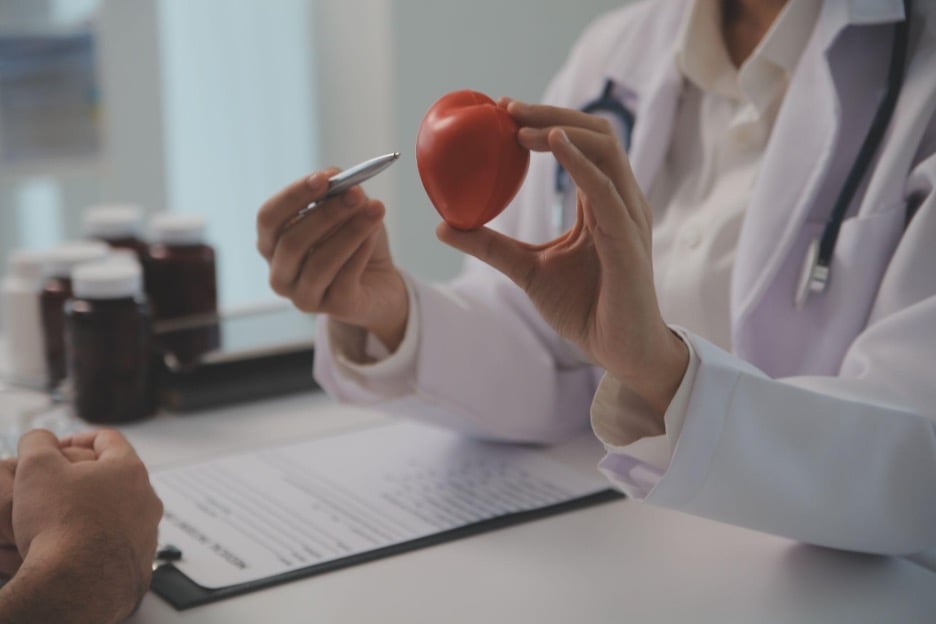
Many individuals visit clinics or hospitals only when they fall ill, and some may believe that regular screenings and preventive care are essential only as they age. Surveys indicate that in the United States, regular screenings and preventive care are not widely practiced because many individuals are unaware of the significance of preventive care. Even among those who are aware, some may perceive these services as unaffordable or lack knowledge on how to access them. A study conducted in 2015 revealed that only 8% of adults aged 35 and above in the United States received recommended preventive healthcare.
However, regular check-ups, as a vital component of preventive care, play a crucial role in detecting health issues before symptoms manifest. Early detection enables timely intervention and treatment, potentially preventing the progression of diseases. Whether you are an experienced healthcare professional or a student newly enrolled in online nurse practitioner programmes, the importance of preventive care is universally acknowledged: screenings and check-ups help identify risk factors for various diseases, allowing healthcare providers to recommend preventive measures such as lifestyle changes and specific disease screenings. According to the Centers for Disease Control and Prevention, preventive care services could save over 100,000 lives in the U.S. every year.

Preventive care encompasses a wide range of services, catering to individuals of all ages and offering numerous benefits. Let's delve deeper into it.
What Services Does Preventive Care Include?
Preventive care for adults typically involves screenings for diseases such as heart disease, diabetes, and cancer, as well as counselling on smoking cessation and maintaining balanced dietary habits. Cancer screenings encompass various tests, including breast, colon, cervical, and prostate cancer screenings. These screenings address some of the most common cancers affecting both men and women, with early detection potentially preventing their spread or worsening.
Screenings for factors that may contribute to chronic diseases, such as blood pressure, cholesterol, and diabetes, can help detect common metabolic diseases that are manageable through medication and lifestyle changes.
Regular check-ups and preventive care also extend to young children and teenagers, including annual physical exams, vaccinations, and screenings for conditions such as autism and lead poisoning.
How Do Regular Check-Ups and Preventive Care Help Save Lives?
1. Offer a chance for individuals susceptible to hereditary diseases to screen and mitigate risk
Some individuals come from families with hereditary diseases, which can be challenging to avoid due to the strong influence of genes and heredity. If you have close relatives, such as your parents or siblings, with health conditions such as diabetes, heart disease, or cancer, this may indicate the need for screenings for similar diseases for you. You may even require earlier or more comprehensive screenings than those without a family history of such conditions. If you notice a trend of certain diseases in your family, consult your doctor. They can advise you on which preventive screenings may suit you and whether you require earlier or more frequent screenings for these diseases.
2. Ease long-term financial stress for potential patients
Although regular check-ups may entail some expenses, early detection of significant illnesses and subsequent treatment can save you considerable costs. For example, some cancer patients can undergo surgical removal in the early stages, leading to a cure or preventing cancer from spreading further. Patients who only discover the illness in its late stages may incur expenses for medical treatment and nutritional supplements and endure the agony of the disease.
3. Uncover hidden serious diseases and identify potential risks early
Without regular check-ups, cavities may go unnoticed until you experience dental pain, potentially necessitating the extraction of your entire tooth. For the elderly or individuals with weakened immune systems, many diseases do not manifest suddenly, but this does not diminish their threat to your health. Conditions such as high blood pressure and heart disease, these potential silent 'killers,' may unknowingly affect you, highlighting the importance of regular check-ups.
4. Guide individuals with unhealthy habits in adjusting their lifestyles to reduce the risk of illness
For example, if you rely on a high-calorie, high-sugar diet, regular check-ups can screen for high blood lipids or conditions such as fatty liver, prompting you to incorporate more vegetables into your diet and reduce the consumption of fried foods to maintain your health. Following the examination, healthcare providers can offer guidance on healthy lifestyle choices and disease prevention strategies and emphasise the importance of regular screenings and follow-ups.
5. Promote early detection and chronic illnesses management to safeguard patients' well-being, family dynamics, and financial security
For individuals with chronic diseases, employment may be challenging, as they often have higher absenteeism rates and lower incomes compared to those without chronic illnesses. Individuals with chronic diseases may also experience additional complications, such as depression. This will add pressure and inconvenience to the individual's life, strain family relationships, and lead to financial difficulties.

Can I Afford Check-Ups and Preventive Care?
It is worth noting that most health insurance plans fully cover preventive care services, including most private health insurance plans and those purchased through the health insurance marketplace. Health plans obtained through Medicaid and the Children's Health Insurance Program (CHIP) also cover preventive care with no out-of-pocket or additional costs incurred.
Regular check-ups and preventive care are significant for individual health outcomes. Preventing diseases before they progress significantly is one of the most crucial steps you can take to safeguard your health and contribute to overall population health.
This article is part of the HealthManagement.org Point-of-View Programme.






















